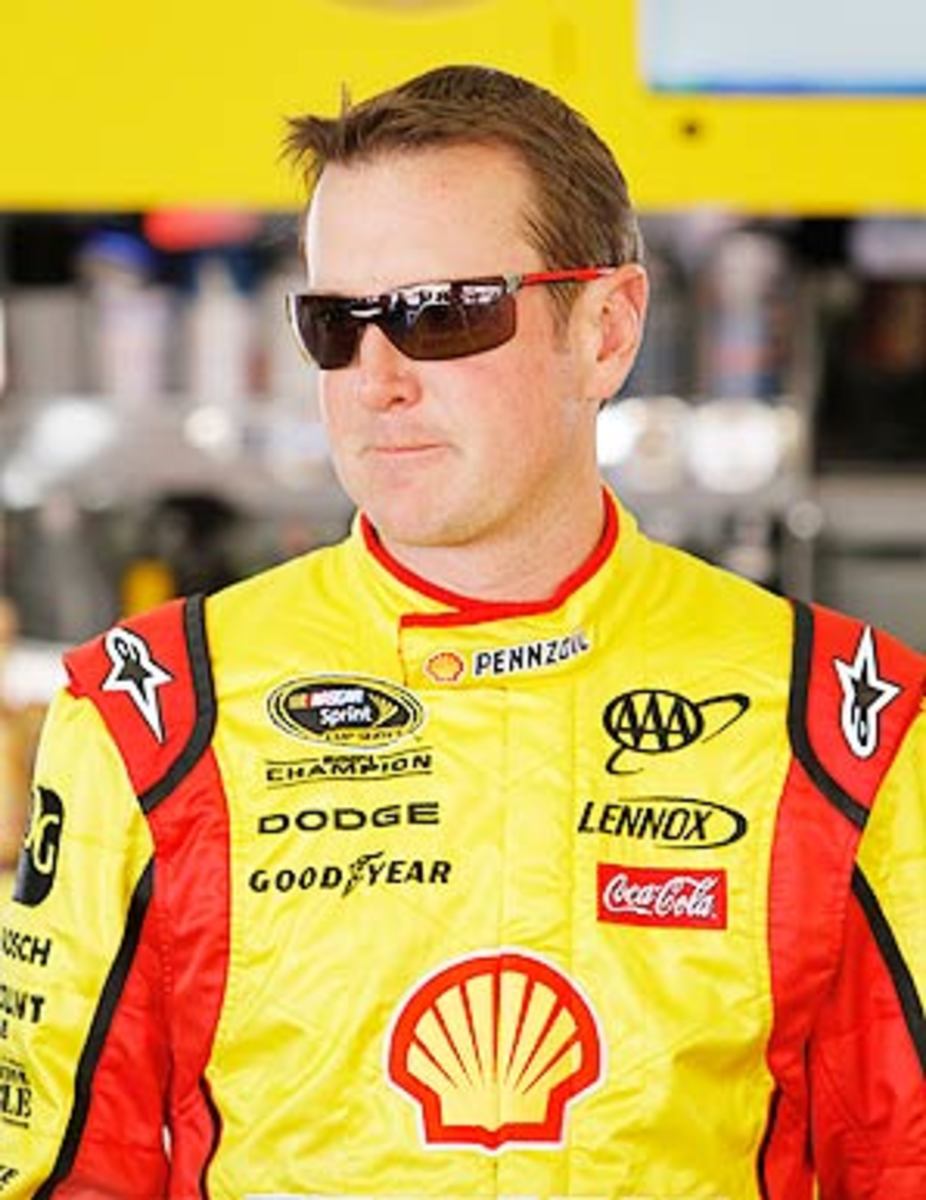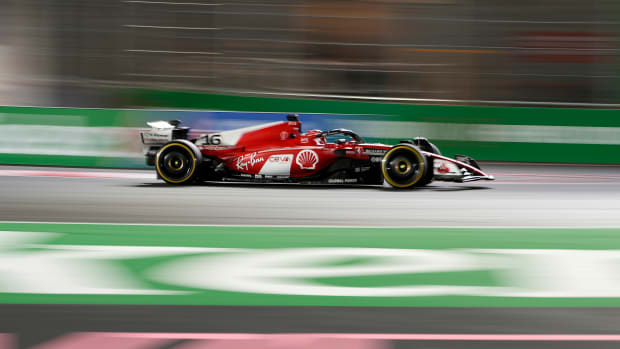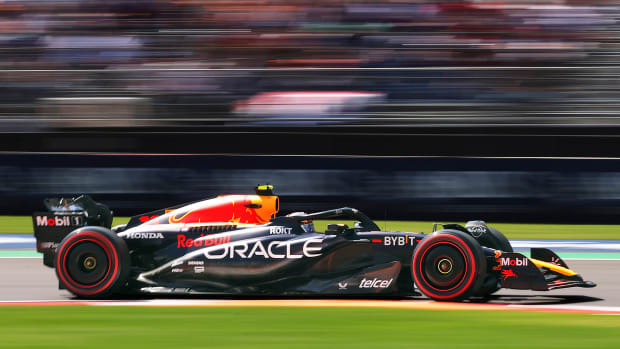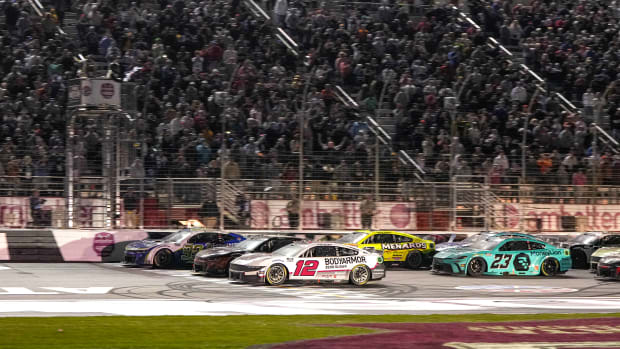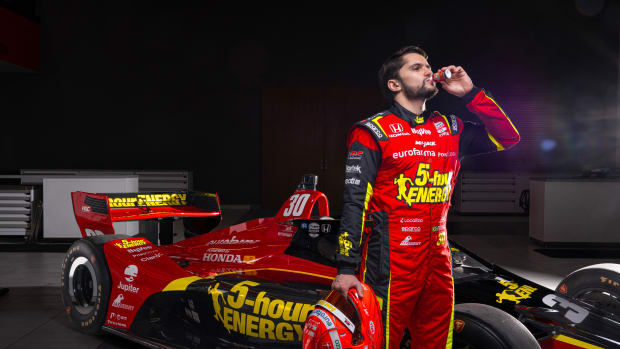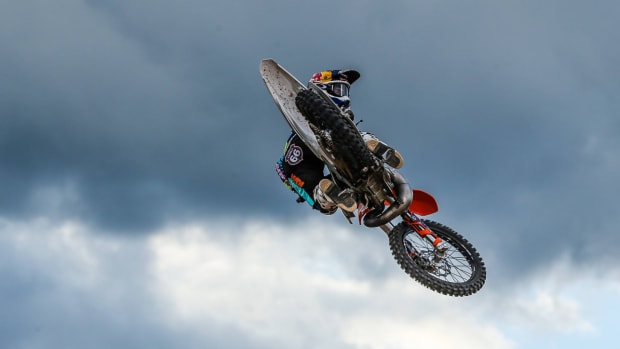Lack of focus, 'cross-pollination' to blame for Penske Racing slump
That mastery has been more elusive in recent seasons, not only in Sprint Cup, where the team has never won a driver championship and long struggled to establish a third Cup team, but more surprisingly in the open-wheel program, where it has won 12 championships. IndyCar driver Will Power openly carped about mistakes after his team beckoned him out of his pit box at Iowa Speedway and into the path of Charlie Kimball, who collided with him, damaging his car and leading to a late-race wreck.
Though Power's vent was lesser in volume and venom than Kurt Busch's rant over team radio at Richmond, it might have been even more poignant and addressed a more troublesome issue. The heartland of Penske's empire is suffering, too.
Team owner Roger Penske said in the spring that mistakes in 2010 that had scuttled Power's bid for the team's first championship since 2006 were borne out of independent and addressable circumstances. And until a recent major restructuring and team rethink, they were happening with greater frequency for Busch, who began the season with success and a rush of confidence, then fell into a swoon. Busch and crew chief Steve Addington insist that Busch's outburst coincided with, not precipitated, those changes even though the named target of his ire -- technical director Tom German -- soon left the team, reportedly to attend MIT.
Busch has found a second sweet spot to his season since, winning at Sonoma, finishing as runner-up at Pocono and winning three poles to ascend to fourth in the standings.
"You've got to get back to basics," Busch said. "'Hey what can we do to not over-engineer?' This is a race car. This is a stock car. And what are the basics we need to do to go be successful? And pit stop and executing those, understanding that when you're trying a new front-end suspension that you can't be hung up in the pits because you can't get a right front spring out of its bucket, then you kill 25 minutes of practice time. Those are the episodes we were going through. It was like, 'Why don't we have a process where we can get this stuff changed quicker or that we can have better pit stops the way we practice our routines? A lot of it was just taken for granted."
Helio Castroneves, who has won three Indianapolis 500s with Penske, said before the IndyCar season that the merger of the IndyCar and NASCAR shops in suburban Charlotte, N.C., late in 2006 might have drained the open-wheel endeavor because some key personnel eventually returned home to the team's old base in Reading, Penn., in essence undercutting the often-repeated assertion from Penske that "cross-pollination" would benefit both organization.
"We push the competition to make all the details very important. Now they're pushing us. Ganassi, Andretti and smaller teams like Dreyer & Reinbold are making a difference. Now we've got to go back to the rhythm again," Castroneves said.
Team president Tim Cindric discounted that assertion and felt a new refocus on pit crews would alleviate the problems Power had in 2010. But Power left a pit stop at the Indianapolis 500 on three wheels this year and then sustained a hard hit into the wall with his already damaged car at Iowa.
Busch and Addington said the relative separation between the open-wheel and stock-car operations in the massive 425,000-square foot complex was unlikely to weaken them collectively, but said the benefits are confined to some information flow and the use of carbon fiber parts, which are constructed internally.
"It helps the economy of Mooresville," Busch joked of "cross-pollination." "There is information that bleeds over it and a lot of it has to do with carbon fiber. We have a carbon fiber shop that produces carbon fiber for us quickly. Is it lights-out big differences? No, it's nice and subtle. But both programs benefit."
So why the issues?
"It would be like a baseball team that's had success," Busch analogized. "You had good batting averages your whole career and then you get into a slump. Are you in a slump because you are trying to count the pitcher's pitches and know what pitch is coming or are you just going to let your talent take over and get that hit when you need it? I think we were just trying to think too far ahead."
Addington said Busch's spring downturn was a result of the team committing to an ultimately flawed data set and that changes were being made before Richmond. The trick now, Addington said, is keeping Busch in the second sweet spot of his season.
"We got off there somewhere and I can't put a finger on one certain thing," Addington said. "We were doing some testing and thought we hit on some things. It was good for 10 or 15 laps when you're running a test but when you get to running 60 laps in races, it was hurting us. ... We came back and saw what we needed to do. We got a bad read on this, we got a bad read on that. We turned it around and everyone has put the effort in to turn it around."
Sprint Cup teams will test fuel injection for the first time today at Kentucky Speedway as the series prepares to phase out the use of carburetors beginning next season. While NASCAR slogs into the late 20th century by using a technology standard in passenger cars, its car remains simplistic in many ways. Though vice president of competition Robin Pemberton said fuel injection technology and the computerization needed to facilitate it will likely lead to further modernization, many drivers prefer the rustic non-amenities of a stock car.
That said, here are some much-needed updates:
1. Speedometers: Drivers gauge their miles per hour before races by gauging tachometer readings against the known speed of the pace car. A precise reading sure would be handy in avoiding pit-road penalties, which could also be addressed with a ...
2. Automatic pit-road speed limiter: Several series, including IndyCar, police pit-road speed by assuring drivers cannot exceed a set speed. A button push assures adherence. Pit-road speeding penalties are a menacing race-changer in NASCAR, but allowing them to go as fast as legally possible during pit sequences would be an improvement. Some drivers, like Jimmie Johnson, disagree, asserting that finding and not crossing the predetermined limit is an exploitable variable, and this after he lost a victory at Dover last year because of a late speeding ticket.
3. Driver metabolics: Carl Edwards' bout with carbon monoxide sickness on Saturday at Daytona International Speedway further illustrated the need for greater understanding and treatment of a potentially dangerous lingering conditioning.
Jeff Gordon could become the inaugural winner at a new Sprint Cup venue for the fourth time with a victory on Saturday at Kentucky Speedway. Gordon, who has two victories this season, won the first Cup races at Indianapolis Motor Speedway (1994), Auto Club Speedway (1997) and Kansas Speedway (2001). According to NASCAR statisticians, Gordon could tie Jack Smith for 10th on the list of inaugural race-winners. Herb Thomas and Tim Flock lead all drivers with 14 wins. The year 1949 was not included in the figures as every race was technically an inaugural one in NASCAR's first season.
It seemed like a lot of trouble to assure that Danica Patrick would return next year to Indianapolis Motor Speedway, the venerable venue that was the scene of her launch into the mainstream in 2005. Actually, the addition of NASCAR's Nationwide and Grand Am series to the July 26-29 Brickyard 400 Sprint Cup weekend had nothing to do with maintaining Patrick's presence at her favorite track, whether she returns to open-wheel racing or undertakes full-time NASCAR career in 2012. That will be an ancillary benefit, and all involved would seemingly take what they can get right now, considering the stagnant racing and subsequent attendance woes at Indianapolis.
